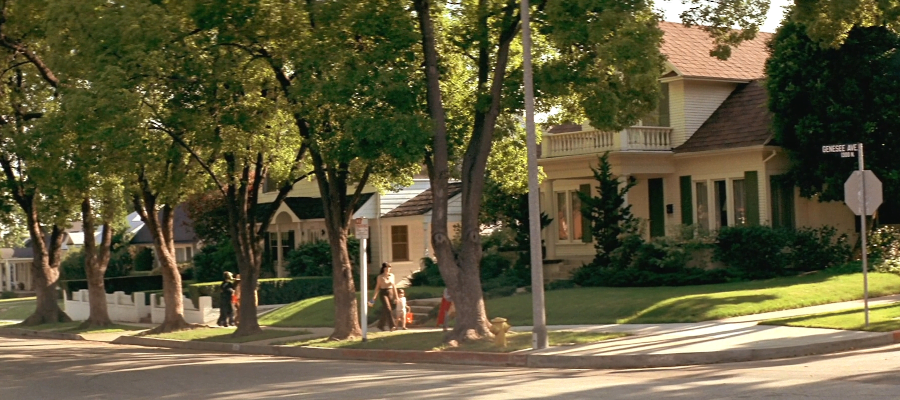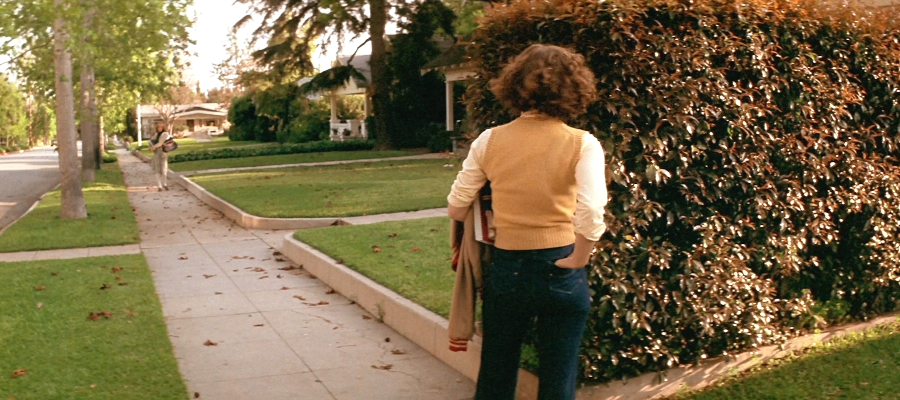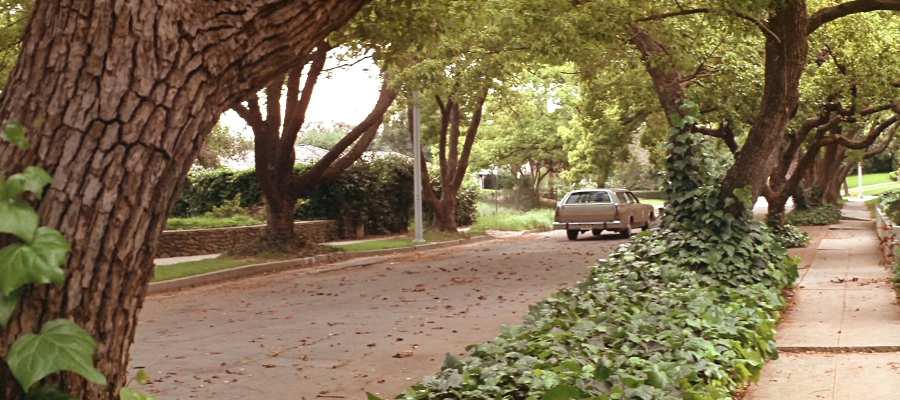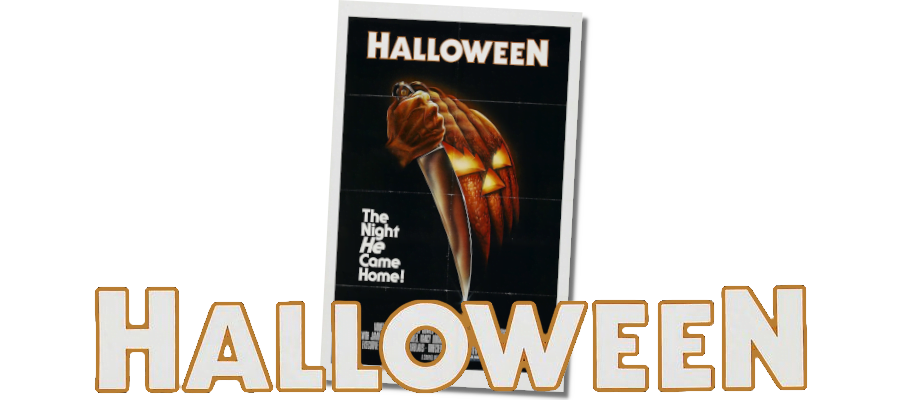Continuing my ongoing experience of watching the classic horror movies that all the horror movies I saw was referencing, I decided to investigate what’s probably the dawn of the horror-slasher-serial killer genre of movies that fascinates me. I grew up in a world shaped by these movies, and the movies of my adolescence that wanted to be scary were often made in response to, or conversation with, these classic movies, so it’s time to pop open a movie about a relentless, unstoppable super-human killing machine that will not stop hunting you or delivering interesting, creative kills, until you’re dead.
This… is Halloween (1978, because I have to specify, because there was a 2018 movie).
Content and spoiler warning! I’m going to talk about some general suburban horror themes, and also, stuff that happens in the movie and its conclusion. You might not feel this particularly merits a warning, but in case you haven’t seen Halloween and wondered if it’s worth watching, and want to check it out without knowing what I think ahead of time, I liked it a lot, and it was very different to what I expected.
First of all, my impression of Halloween based on it and the genre of movies that followed along after it, was that it’s about some kind of haunted ghost monster man with super powers that could show up and mess you up, like he was practically teleporting and stuff. Scream and Friday the 13th and Nightmare on Elm Street and other things that the Simpsons wound up referencing all had the same general vibe and I assume these mostly come out of Halloween. It seemed to be first.
Guess what, other newbies? This movie isn’t that kind of movie! It’s not about an implacable, unstoppable, inhuman supermurderbeast who does weird creative kills and seemingly teleports off-screen! This is a psychological horror movie that is super scary in part because it’s so unsettlingly realistic.
Oh, it’s not that realistic, I’m sure. The society wasn’t that pristine, the streets weren’t that clean, the people weren’t that innocent and safe and the whole world was not so unvarnished. But the world presented in Hallloween is a really well constructed, whole, tense story.
The story is about a kid, who commits an act of violence, then is institutionalised and through good old 1960s into 70s medical and psychological science, becomes a territorial monster overwhelmingly focused on returning to the place he feels safe, and defending it. It’s not magical, there’s no quest, there’s no possession: You’re watching people who have no meaningful idea of how to interact with a story encountering violence and horror as represented by something of their own they didn’t want to deal with.

It feels in a lot of ways less like a ‘horror movie’ or a ‘slasher movie’ as much as almost a kind of true crime movie. There’s a material sensibility to what’s going on. No cursed knives or impossibly gory kills, just relentless, implacable stalking from someone who doesn’t care about the pain they’re inflicting. Someone who doesn’t really understand other people’s feelings, in a way that feels, well, realistically traumatised.
Realism is always a moving target, right? It seems a realistic story to me, within a little boundary of its hyper-reality. You can’t support an entire body on a knife through the sternum into a wall, that’s not likely going to work. I haven’t handled a 1970s phone as far as I know, I don’t think the cables are strong enough to choke someone to death. I assume that if I did that with a cable from my childhood, a decade or more later, the cable would snap first. Maybe because they made the cables weaker after this movie! Who’s to say.
On the other hand, a lot of things that the genre did after this point that are treated as ‘unrealistic’ tropes of the form, just make complete sense here. Laurie Stroud running from Michael Myers and falling over wasn’t because she was stupid and sucks and they wanted to needlessly build tension: It was because she’d just fallen down the stairs and she was injured! People weren’t answering their doors or helping her because it was Halloween, so they figured it was a prank!
The closest thing to a meaningful ‘plot hole’ I can see in the whole thing is that it is a bit weird that Michael can drive. It’s weird because I can’t work out where he would have learned it. I mean, I can – just have someone roleplay it with him in the asylum as part of therapy. But the person who would oversee that is Loomis, and that person would know about it.

I don’t imagine that Michael Myers was made the way he was by the story because there was some greater point about psychological institutions in the United States. I think that’s just how it looks, now, looking back, that a man institutionalised and doped up for containment for 15 years because his therapist didn’t know how to understand him, winds up being a very dangerous, hostile asshole who wants to control his environment through violent means. The why doesn’t need much exploring, and honestly, asking for a why is kind of missing the truth right in front of you.
There’s not really an explanation for what Michael is. We know he was a kid, we know he did something, but there’s no actual explanation for what he did and why he did it. There’s no explanation for why he’s so strong or why he’s so big or why he’s so relentless. It’s all just a silhouette, a cutout in the shape of a person, because he’s not actually about why. He’s just about what.
Despite that though, there’s a lot of stuff he does that makes absolute sense. He went back to his house and he got mad at someone who touched it. He wanted to be left alone, so he attacked people connected to that. He didn’t have a reasonable response, but he still did things in a reasonable, coherent, acceptable way. Stalking around the streets, he was capable of behaving in a way that minimised attention to him; staying out of sight, exploiting darkness, or keeping distance from the things he was observing. When he was chasing Laurie, he didn’t run after her, which makes sense, because he knew she was injured, and him chasing her would get attention.
It’s probably for the best that Michael doesn’t have anything to him. At least, nothing that needs further explaining. There’s room to make hay out of the idea that Michael Myers needs a reason to be the way he is, but the movie doesn’t seem to think so. There’s not a lot of reason to explain what he is, and even Loomis’ bombastic sentiment about it seems to be born out of an attempt to get the people around him to take what he’s talking about seriously.

Honestly, the biggest thing about this movie after watching it is realising how alien it is, how the world it is in is so messed up and different to the world I’m in, and even the world I grew up in, and how hard it can be to determine if that’s because of things the movie changed in the world. Can you treat Halloween as a piece of apocalyptic fiction? Not post-apocalyptic, but apocalyptic, in that it generates a great revelation and then the world is changed afterwards. What I mean is that Halloween, as a movie, is a movie that ended the world. In the real world. The world existed in one way, and then Halloween happened, and after Halloween the world was different, and started to change to reflect what Halloween had done to it.
After this movie came out, did it become easier to imagine a strange, loose stalker hunting people at night? Did people get more defensive, more paranoid, because a story they were told about a safe place like theirs, and as a result, get more withdrawn and less interested in connecting to their community?
Did Halloween the movie erode its own place in the world?

1 Trackback